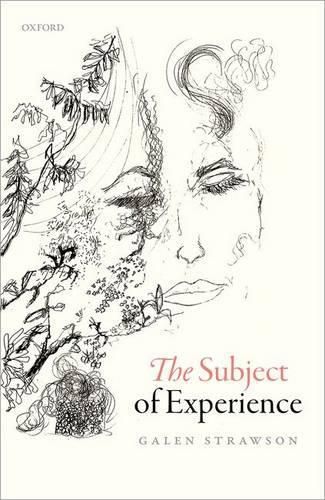Readings Newsletter
Become a Readings Member to make your shopping experience even easier.
Sign in or sign up for free!
You’re not far away from qualifying for FREE standard shipping within Australia
You’ve qualified for FREE standard shipping within Australia
The cart is loading…






The Subject of Experience is about the self, the person. It takes the form of a series of essays which draw on literature and psychology as well as philosophy. Galen Strawson discusses the phenomenology or experience of having or being a self (What is the character of self-experience?) and the fundamental metaphysics of the self (Does the self exist? If so, what is its nature? How long do selves last?): he develops an approach to the metaphysical questions out of the results of the phenomenological investigation. He argues that it is legitimate to say that there is such a thing as the self as distinct from the human being. At the same time he raises doubts about how long selves can be supposed to last, insofar as they are distinct from human beings. He also raises a doubt about whether a self (or indeed a human being) can really be said to lose anything in dying. He criticizes the popular notion of the narrative self, and considers the differences between ‘Endurers’ or ‘Diachronic’ people, who feel that they are the same person when they consider their past and future, and ‘Transients’ or ‘Episodic’ people, who do not feel this. He considers the first-person pronoun ‘I’ and a number of puzzles raised by the phenomena of self-reference and self-knowledge. He examines Locke’s, Hume’s and Kant’s accounts of the mind and personal identity, and argues that Locke and Hume have been badly misunderstood.
$9.00 standard shipping within Australia
FREE standard shipping within Australia for orders over $100.00
Express & International shipping calculated at checkout
The Subject of Experience is about the self, the person. It takes the form of a series of essays which draw on literature and psychology as well as philosophy. Galen Strawson discusses the phenomenology or experience of having or being a self (What is the character of self-experience?) and the fundamental metaphysics of the self (Does the self exist? If so, what is its nature? How long do selves last?): he develops an approach to the metaphysical questions out of the results of the phenomenological investigation. He argues that it is legitimate to say that there is such a thing as the self as distinct from the human being. At the same time he raises doubts about how long selves can be supposed to last, insofar as they are distinct from human beings. He also raises a doubt about whether a self (or indeed a human being) can really be said to lose anything in dying. He criticizes the popular notion of the narrative self, and considers the differences between ‘Endurers’ or ‘Diachronic’ people, who feel that they are the same person when they consider their past and future, and ‘Transients’ or ‘Episodic’ people, who do not feel this. He considers the first-person pronoun ‘I’ and a number of puzzles raised by the phenomena of self-reference and self-knowledge. He examines Locke’s, Hume’s and Kant’s accounts of the mind and personal identity, and argues that Locke and Hume have been badly misunderstood.